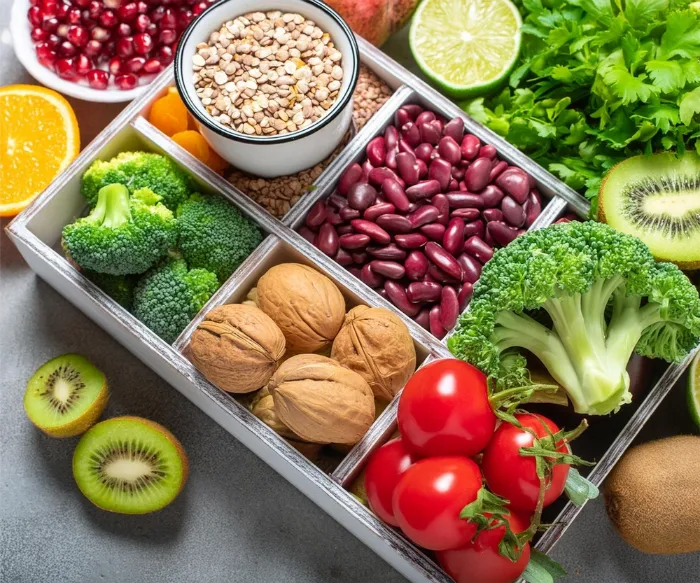Fiber is a type of carbohydrate that the body can’t fully digest but that’s exactly what makes it so beneficial for your digestive system. Found in plant-based foods like fruits, vegetables, legumes, and whole grains, fiber helps regulate how your digestive system functions.
At Bedford Gastroenterology, we often remind patients across Bedford, NH that getting enough fiber is one of the simplest and most effective ways to support long-term gut health.
The Two Types of Fiber
-
- Soluble Fiber
-
- Dissolves in water and forms a gel-like substance in your gut
-
- Helps lower cholesterol and stabilize blood sugar levels
-
- Found in: oats, apples, citrus fruits, beans, and carrots
-
- Insoluble Fiber
-
- Adds bulk to your stool and helps food pass through your digestive tract more efficiently
-
- Prevents constipation and supports regular bowel movements
-
- Found in: whole wheat, nuts, cauliflower, green beans, and potatoes
Most plant foods contain a mix of both types, which is why eating a variety of fiber-rich foods is key.
Benefits of Fiber for Digestive Health
A fiber-rich diet supports your GI system in many ways:
-
- Promotes regularity and prevents constipation
-
- Feeds healthy gut bacteria, supporting your microbiome
-
- Reduces risk of colon cancer, diverticulosis, and hemorrhoids
-
- Improves satiety and blood sugar control, which can aid in weight management
For people with IBS, diverticulosis, or other GI issues, the right type and amount of fiber can make a big difference in symptom control.
How Much Fiber Do You Need?
The average adult should aim for:
-
- Women: 21–25 grams per day
-
- Men: 30–38 grams per day
Unfortunately, most Americans fall short of that goal. At Bedford Gastroenterology, we help patients understand how to meet their fiber needs through food or supplementation if necessary.
Tips to Boost Your Fiber Intake
-
- Start your day with oatmeal or whole grain cereal
-
- Add beans or lentils to soups and salads
-
- Snack on fruits with the skin on (like apples or pears)
-
- Choose whole grain breads and pastas
-
- Add chia seeds or ground flax to smoothies
Pro Tip: Increase fiber gradually and drink plenty of water to avoid bloating or discomfort.
Support Your Digestive Health in Bedford, NH
If you’re dealing with constipation, irregularity, or other digestive issues, your fiber intake could be part of the problem or the solution. We’re here to help you find the right balance.



